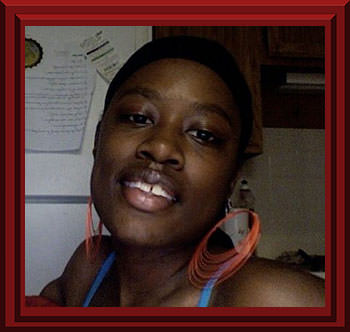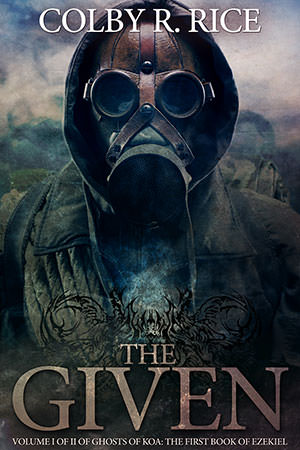Today I’m interviewing author Colby R. Rice, who describes herself as a shameless nerd and bookworm. Thank you, Colby, for taking the time to chat to me. Please sit down, get comfortable and let’s begin.

About Colby R. Rice
Dystopian, Sci-fi Thriller, Urban Fantasy, and Crime Noir(e) Novelist. Screenwriter. Film Director. Game Writer & Narrative Designer. Globetrotter. Fable Hunter. Action Junkie. Rebel Ragdoll.
A shameless nerd and bookworm since the age of five, Colby R. Rice is the author of The Given and The Taken, the first two novels in The Books of Ezekiel, a dystopian sci-fi and urban fantasy decalogy.
She was an Air Force BRAT born in Bitburg Rheinland-Pfalz, Germany and came to the States at the age of one. Colby bounced around a lot but finally settled in Tucson, where she could at last deal with her addictions to writing, legends & mythology, filmmaking, creative entrepreneurship, motorcycles, and traveling.
Now, armed with a mound of animal crackers and gallons of Coca-Cola, Colby takes on the fiction writing trinity (novel writing, screenwriting, and game writing) in a fight to the death!
What’s the name of your new book?
The Given (The Books of Ezekiel #1)
Tell us a bit about your book
For over one hundred years the Civic Order and the Alchemic Order have held a shaky truce, peppered by violence and mistrust. But when Koa, a Civilian-born insurgency, bombs an Alchemist summit, the truce is shattered. Now, Koa is rising. War is coming. And all sixteen-year-old Zeika Anon can do is keep moving as she watches the lords of alchemy slowly overtake her home.
But when clashes between Koa and the Alchemic Order put a final, deadly squeeze on the remaining Civilian territories, Zeika finds herself in the crosshairs of fate. She must walk the line between survival and rebellion against the Alchemists. On one side of the line awaits death. On the other, the betrayal of her civilization, her loyalties, and herself.

How important are character names to you in your books? Is there a special meaning to any of the names?
Om-GOSH, names drive me insane because they are SO important to me. There’s always some deeper meaning to how or why I’ve named a character in a certain way. I feel like there’s a lot of essence, spirit, meaning, history, and nuance in a name. For example, in my Books of Ezekiel series, the brother of one of the main characters is Sairen, which (in spelling) is androgynous but also refers to his inner moral compass (like a siren’s call), which ultimately becomes his doom.
If you could choose ten words to describe your book, what would they be?
Dark. Gritty. Noir(e). Witty. High-octane. Unapologetic. Ass-kicking. Magical. Urban. Fantastical.
Where do your ideas come from?
So, before really jumping fully into my career as a novelist and filmmaker, I trained for nearly 7 years as a sociologist and social researcher. I was really invested in exploring social problems and posing statistically-informed, research-based solutions to these problems. Issues like poverty, disease, racism, sexism and sexuality, health, and more were always on my mind and still are. As a result, most of my novels are always, on some level, exploring social problems, asking questions, and posing social experiments and thought experiments through the lens of sci-fi and fantasy. I don’t think I sacrifice any of the fun, action, tropes, or escapism that’s expected from SFF/H novels, but I find it impossible to write any series that isn’t actually about anything significant or socially relevant.
Where do you see yourself in 10 years?
My dream is to build my company, Rebel Ragdoll, into the ultimate media f’empire. Currently, Rebel Ragdoll stands as a female-identified, multimedia brand dedicated to increasing the presence and impact of women, people of color, and other disenfranchised communities in publishing, filmmaking, and game design. I hope to empower artists to create, push change, and make a living with their art.
Specifically, Rebel Ragdoll is divided into four creative subsidiaries:
— Rebel Ragdoll Press (publishing),
— Rebel Ragdoll Productions (film & TV),
— ChickRogue Studios (games, software, and animation), and,
— The Bohemian Badass (creative education & training).
Personally, though, in addition to running Rebel Ragdoll, I myself want to publish an insanely large backlist of sci-fi, fantasy, thriller, crime noir(e), and survival horror novels. I also want to create and direct a bunch of action, horror, and sci-fi movies with all-female crews! I’d love to be one of the most prolific creators to ever have lived. 🙂
Have you always liked to write?
I’ve loved writing since the age of 10. It literally saved my life as a child and allowed me to jump into new, amazing, incredible worlds when the world around me was falling apart. Writing will always be my passion.
What writing advice do you have for aspiring authors?
1. Write like shit and have fun. No, really. It’s ok. Just WRITE and get a draft DONE.
2. Remember that the point of the first draft is to tell YOURSELF the story, not anyone else.
3. Write like shit some more and have fun.
4. Write to think, don’t think to write.
5. Outlines are great! But also: write to think, don’t think to write.
6. Write like shit again, have fun, and THEN re-write to make your work less shitty. And have fun.
7. Did I mention you should have fun?
8. Read. A lot. Both fiction and non-fiction, and read both within and outside of your genre. Not only is it fun but it’s also educational and inspirational and allows you to “steal like an artist”, as Austin Kleon would say. 😉
9. Write like shit often, and have fun, as much as possible, and then re-write.
10. Write what you want to see in the world. If you want to see more protagonists in wheelchairs who save the day, get the girl (or boy), and who become the baddest dude / chick on the block, then WRITE IT. And then tell me where to buy it!
If you didn’t like writing books, or weren’t any good at it, what would you like to do for a living?
I can’t imagine a life without novel writing, BUT if I hated it, I’d definitely then just be a full-time screenwriter, film director, and film producer.
What is your least favourite part of the writing / publishing process?
The writing. LOL! (True and yet not true.) I know that sounds terrible, but sometimes I can hate writing because it’s so damn hard! But I also love it at the same time. I can’t seem to stay away from writing, even when it stresses me out. I’m compelled to keep doing it even if it’s killing me, so that tells me that it’s what I’m meant to do.
Do you have a favourite conference / convention that you like to attend? What is it?
New York City Comic Con. I LOVE it! It’s so fun! And I’m looking forward to tabling there, with my novels, either this year or in 2018. 🙂
What are you working on now?
Oh my goodness, too many things! Right now, I’m:
— writing book #3 in my Books of Ezekiel series, “Hollow Point”
— writing a fun and shitty first draft of book #1 of my Hitmen of Happily Ever After series, “Rose and John Does”
— writing a fun and shitty first draft of book #1 of a cyberpunk trilogy called “Asylum”
— working on the screenplay for my horror film, SANDMAN
— doing pre-production for my horror film in-progress, SANDMAN, and preparing for our film shoot
Why did you choose to write in your genre? If you write in more than one, how do you balance them?
I’m an action junkie and an imagination junkie, so my genres of interest really stem from those two addictions. Sci-fi, fantasy, dystopia, action, thriller, and crime noir(e) tend to encapsulate all the heart-pounding, chair-gripping, epic, otherworldliness that I’ve always loved as a fiction reader, and now, writer!
As to how I balance my genres, I honestly just let the story question, the character’s dramatic need, and the journey necessary to achieve that need dictate the appropriate genre for the series. But other times, if I’m feeling burned out on one genre (like dystopia), I just choose to work in a genre that feels like it’s giving me a breath of fresh air (like urban fantasy).
What advice would you give to your younger self?
“Write more, write recklessly, and produce MORE shitty drafts. (And then make them better.) The Amazon KDP revolution will be here in 6 years! Also, do you know how big your novel backlist could be in 2017 if you’d just write with reckless abandon? WRITE AS MUCH AS POSSIBLE!” (Can you tell I have 1 or 2 regrets? Lol!)
Do you have a day job in addition to being a writer? If so, what do you do during the day?
I do! I’m a full-time graduate student pursuing my second masters degree, an MFA in Theatre Arts (with a focus on Generative Dramaturgy). I also teach as a graduate teaching assistant. So, yes, working, going to school, and trying to write in the spaces between!
What’s the best thing about being an indie author?
The control. And the ability to create diversity where it was once limited. It’s addictive. The idea that I can write whatever I want to write, explore whatever I want to explore, put any protagonist I want at the center of my story, pursue diversity with reckless abandon, and weave stories in the way that I like and STILL be able to publish my novels on my own… wow. That is super powerful and amazing. That I can decide what my destiny and focus is in publishing is something I’d never trade in for anything!
What do you find most challenging about writing?
Staying confident and motivated while I’m grinding away on a writing project is one of the hardest and challenging parts of being a writer. Sometimes I really look at my drafts and go, “Wow. This really IS a shitty draft. And I hate it. And I suck.”
Lol, yeah. Just keeping it real!
There are times I do get discouraged and down on myself, and that can make it hard to write. Still, it’s important to recognize that when my energy is low and dark, that I just need to step out of the critical editor mind and step back into the playful, frolicking artist mind. Usually that means working on a different project for a day or two, or shifting into worldbuilding mode, or even just taking a break to do some reading or to Netflix some great shows (which are also a great way to study story while having fun)!
The best way to face these challenges though is to keep writing, and to develop a daily (or mostly daily) writing habit, even when it feels excruciating.
Where can readers go to discover more about you and your books?
Website | Blog | Facebook | Twitter | LinkedIn | Pinterest | Amazon Author Page | Smashwords | Instagram | Goodreads | YouTube
Available formats: ebook and audiobook
1



Be the first to comment!